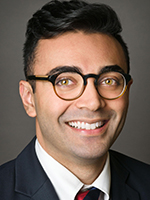There is a grasp for the right information amid an evolving and even bigger epidemic of misinformation
 In a recent tweet, Nadia Alam, an anesthetist, shared how her son was cornered and bullied by fellow school kids who wanted to “test” him for coronavirus because he was half-Chinese. The New York Times recently published a story with the headline, “As Coronavirus Spreads, So Does Anti-Chinese Sentiment,” documenting the concerning global wave of xenophobia and racism against Chinese communities, most of whom have not even been to mainland China recently.
In a recent tweet, Nadia Alam, an anesthetist, shared how her son was cornered and bullied by fellow school kids who wanted to “test” him for coronavirus because he was half-Chinese. The New York Times recently published a story with the headline, “As Coronavirus Spreads, So Does Anti-Chinese Sentiment,” documenting the concerning global wave of xenophobia and racism against Chinese communities, most of whom have not even been to mainland China recently.
I am seeing a similar fear in hospital. I recently treated an older Asian gentleman who was sick with a common community-acquired pneumonia. When I asked about his travel history, including Wuhan, he and his family very nervously denied any connection. I could tell he felt defensive and almost embarrassed.
It is unfortunate, but this widespread panic is not new—as a global public, we are making the same mistakes that we did with SARS, Ebola, Zika, MERS, and our many other global epidemics. Rather than uniting against a disease, we are dividing against each other. So far, what has spread quicker than coronavirus is the xenophobia that has grown from it. And one of the challenging consequences of this is that people may be more hesitant to present to healthcare authorities if they do have symptoms. What we need is to support each other openly, not stigmatize and isolate one another.
The novel coronavirus (an official name has yet to be declared) is indeed serious—the World Health Organization (WHO) has issued a declaration of a Public Health Emergency of International Concern (PHEIC). Despite the WHO very clearly stating, “there is no reason for measures that unnecessarily interfere with international travel and trade,” countries have begun closing their borders. These decisions are only going to create more hysteria, exacerbate xenophobia, diminish trust, and have palpable economic consequences with minimal public health benefit.
We don’t yet know all of the details of the virus, particularly how many total cases there are as mild cases may never present to a hospital. But what we do know is that among the general public there is a grasp for the right information amid an evolving and even bigger epidemic of misinformation. Social media platforms such as Facebook are trying to contain this spread of falsehoods, which is tough for a company that already has such low levels of public trust. And in this fear of the unknown, the global public health community has a duty to respond efficiently and to reassure the general public, countering any misinformation about the outbreak.
In one of his most famous works, Aequanimitas, William Osler, the father of modern medicine, urges doctors to practice imperturbability. He writes, “Imperturbability means coolness and presence of mind under all circumstances, calmness amid storm, clearness of judgement in moments of grave peril, immobility, impassiveness…” This has stuck with me as a practising physician. On a regular shift, I very well could be (and have been) confronted with multiple decisions that lead to death, or preserve life. And so, I try my best to practice with clarity of thought regardless of circumstance. We all need to do so with regard to this rapid and harmful spread of both xenophobia and misinformation.
In an important act of solidarity, many major publications and organizations have committed to the open sharing of all data related to the coronavirus. This week, the New England Journal of Medicine released a paper investigating the epidemiology of the virus and its spread. The BMJ has published a series of articles and resources about coronavirus. And the Lancet highlighted critical data showing the clinical characteristics of the pneumonia. The most common symptoms were fever and cough (>80% of cases), followed by shortness of breath (31%) and muscle aches (11%). This week alone, I have taken care of dozens of patients with these symptoms. Guess what they all had? An even bigger viral epidemic that is killing patients in almost every part of the world already. Influenza.
The great irony is that this level of public concern over coronavirus exists at a time when people still refuse the flu shot. To put this into perspective, the flu has killed an estimate of between 8200-20 000 people since October 2019. As of 31 January, coronavirus has killed 213. Imagine if we had a coronavirus vaccine? I’m certain that many of those people who refuse to take the flu vaccine would be the first in line.
The novel coronavirus is spreading rapidly and we do not know what the outcome will be. It deserves the respect of a new disease that is in the same family as SARS and MERS. But as we prepare to respond as a global community, we need to be sure to contain the parallel epidemics of xenophobia and misinformation.
Abraar Karan is a doctor at Brigham and Women’s Hospital and Harvard Medical School. Twitter @AbraarKaran
Competing interests: None declared.
The opinions expressed in this article are solely those of the author and do not reflect the views and opinions of Brigham and Women’s Hospital.
